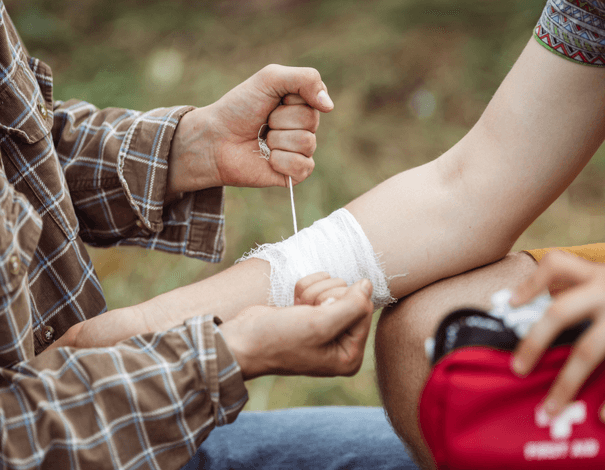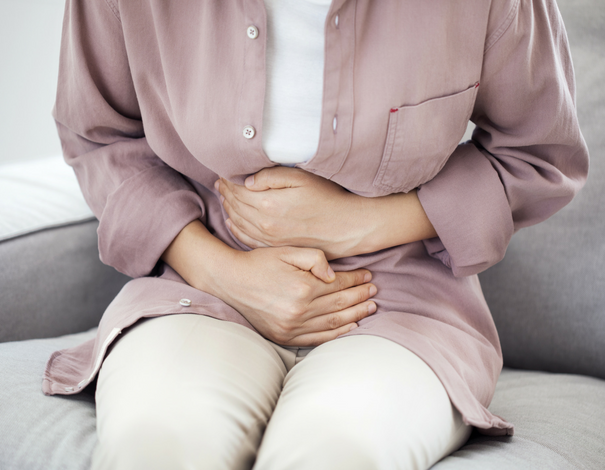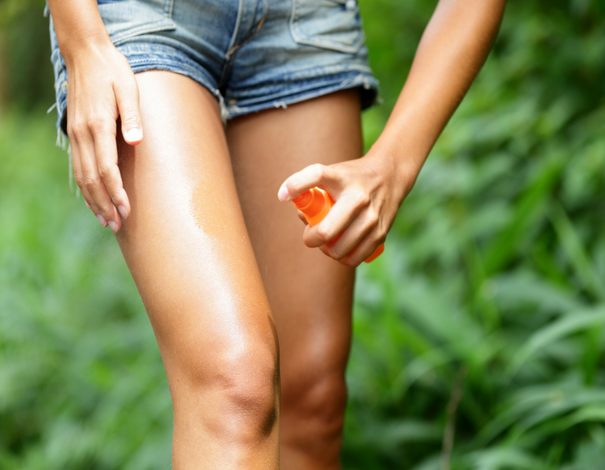How to Prevent Lyme Disease: Symptoms, Causes & Treatment
Participating in outdoor activities is a great way to get active. When should you be concerned about tick bites and Lyme disease? Read on to find out more about the transmission and prevention of this disease.What is Lyme disease?
Lyme disease is caused by a bacterium called Borrelia burgdorferi, which is transmitted when a tick bites a human or animal to feed.
There are many species of ticks in Canada, but the blacklegged tick (Ixodes scapularis) is the only one that can transmit Lyme disease. The blacklegged tick is a very small arthropod, about the size of a poppy seed (nymph stage) or a sesame seed (adult).
Ticks can bite anywhere on the body, not just on areas of skin not covered by clothing. They are often found in the groin, armpit, scalp, ears, back of the knees, lower back, or buttocks. Because tick bites are virtually painless, many people don’t realize they’ve been bitten.
Lyme disease cannot be transmitted from infected pets or from person to person.
What are the symptoms of Lyme disease?
Symptoms can vary from person to person, but Lyme disease usually begins with a rash at the site of the bite. This rash may appear 3 to 30 days after the tick bite, but can occur up to 3 months later.
Characteristics of the rash:
- Round or oval rash that spreads progressively over several days to reach 5 cm or more (sometimes less)
- Usually uniformly red but may sometimes have a target-like appearance (a red ring around a pale area with a red centre), be very pale in colour, or have poorly defined borders
- Lasts at least 48 hours
- Not painful and causes little or no itching
Flu-like symptoms such as fever, chills, muscle or joint aches, and fatigue may also occur in the weeks following the bite.
If left untreated, the bacteria can spread throughout the body and cause more severe symptoms, sometimes months after the bite. Symptoms may include the appearance of additional areas of redness, facial paralysis, numbness in a limb, neck pain, severe headache, swelling in the joints, chest pain, palpitations, and dizziness.What is the risk of getting Lyme disease if you are bitten by a tick?
To contract Lyme disease, the tick that bites you must be infected with the bacteria. Fortunately, not all ticks are carriers of the bacteria! Studies have shown that in high-risk transmission areas, between 12% and 50% of ticks are infected.
What’s more, the transmission of the bacterium is not rapid. It is estimated that the tick must remain attached for at least 24 hours for the bacteria to be transmitted from the tick to the human (or animal). The longer the tick remains attached, the greater the risk of transmission. That’s why it’s so important to remove a tick that has bitten you as soon as possible.
In Canada, the majority (95%) of Lyme disease cases reported each year come from southern Ontario, southern Quebec or Nova Scotia, but cases have been reported in all 10 provinces. Most provinces have maps showing the areas where Lyme disease has been reported on their territory, and therefore where the risk of contracting the disease is higher. Outside these areas, there is still a risk because ticks can be carried by migratory birds, but it is much lower.
When and where should you protect yourself from tick bites?
Blacklegged ticks are active when the temperature reaches 4° C or higher, but their peak activity occurs when the temperature is warmer (around 25° C). Ticks can be found in forested areas or in tall grass. They can also be found in leaf litter and wood piles.
Because they don’t fly or jump, ticks sit at the end of tall grass, leaves or branches, stretching their legs to cling to passing animals or people, or dropping onto those who pass by.
Pets can bring ticks home, which can then be transferred to humans. If you live (or travel) in an area at risk for Lyme disease transmission, it’s important to check your pets’ coats and skin regularly.
How can you protect yourself from being bitten by ticks?
You should take precautions every time you participate in activities in areas where ticks may be found, such as hiking, golfing, hunting, camping, gardening and bird-watching.
To reduce the risk of tick bites, take similar precautions as for mosquito bites.
- Wear long, light-coloured clothing (to make ticks easier to see) and closed shoes.
- Use insect repellent containing DEET or icaridin.
- Walk on trails or walkways and avoid areas with tall grass.
- When you return from an outdoor activity, take off your clothes and put them in the dryer on high heat for at least 10 minutes. If you wash them, use hot water.
- Inspect your skin over your entire body before putting on clean clothes to make sure there are no ticks on you. Ticks can be found anywhere, including in and around the ears, on the scalp, under the armpits, in the belly button, around the groin, behind the knees or between the toes.
There are no vaccines available, but studies are currently underway.
How to safely remove a tick?
If you find a tick attached to your skin, it’s important to remove it quickly. Here’s how to do it safely.
- Use fine tweezers, such as eyebrow tweezers, to grasp the tick. Do not use your fingers or nails.
- Grasp the tick by the head, placing the tip of the tweezers as close to the skin as possible. Make sure not to compress the tick’s abdomen.
- Pull gently and firmly upward to dislodge the tick, without twisting it.
- Place the tick in a small container (such as a pill bottle) and refrigerate. Note the date and the part of the body where the tick bit you. If you develop a rash or other symptoms, the tick will help confirm the diagnosis.
- Wash the bite area and your hands thoroughly with soap and water.
Keep an eye out for the appearance of a rash at the site of the bite over the next few weeks.
If you live in a high-risk area or do a lot of outdoor activities, you may find it useful to purchase a tool specifically designed to remove ticks (tick puller). Follow the manufacturer’s instructions for removing a tick.
How is Lyme disease treated?
If you were bitten in an area where there is a risk of Lyme disease transmission, you may be eligible for prophylactic antibiotic treatment if you meet certain criteria. Prophylaxis must be taken within 72 hours of the bite. Don’t delay! Call 811 quickly to find out if you are eligible. In some provinces, pharmacists can prescribe this preventive treatment.
Because Lyme disease is caused by bacteria, it is treated with oral antibiotics. Treatment usually lasts 10 to 14 days. If the infection is caught late, hospitalization may be necessary.
It’s important to know that having had Lyme disease once does not protect you from getting it again.
What is post-treatment Lyme disease (PTLD)?
In some patients who have been diagnosed with Lyme disease and have received the recommended antibiotic treatment, symptoms such as severe fatigue, musculoskeletal pain, sleep disturbances, depression, and cognitive problems may persist after treatment has ended. PTLD (sometimes called chronic Lyme disease) appears to be more common in people who were treated late, when Lyme disease was more advanced, especially if neurological symptoms were present.
It is not known exactly why some people continue to have symptoms after treatment, but it may be related to an inappropriate immune system response, a persistent inflammatory process, or infection with another tick-borne parasite (in addition to Lyme disease). Studies are underway to better understand the causes of these persistent symptoms and to find an effective treatment.
Your pharmacist is here for you!
Whether you have questions about Lyme disease prevention or treatment, or tick bite prevention, don’t hesitate to ask your pharmacist for professional advice.
Remember, even in transmission-prone areas, not all ticks are blacklegged ticks infected with Borrelia burgdorferi. To formally identify the tick that bit you (or your pet), you can submit a photo of it to etick.ca, a public platform for identifying images and tracking tick populations in Canada (from Bishop’s University).
The information contained herein is provided for informational purposes only and is not intended to provide complete information on the subject matter or to replace the advice of a health professional. This information does not constitute medical consultation, diagnosis or opinion and should not be interpreted as such. Please consult your health care provider if you have any questions about your health, medications or treatment.




